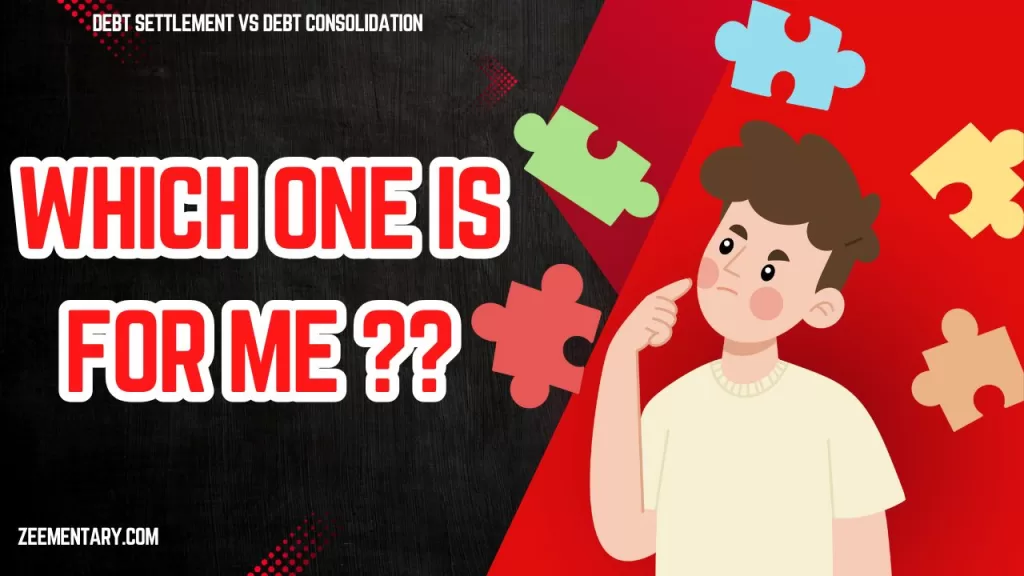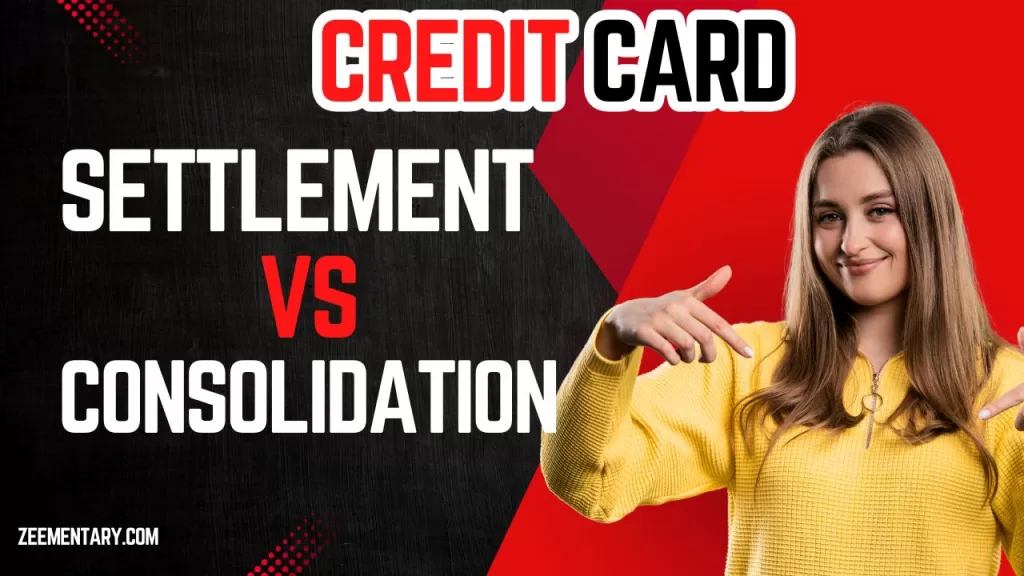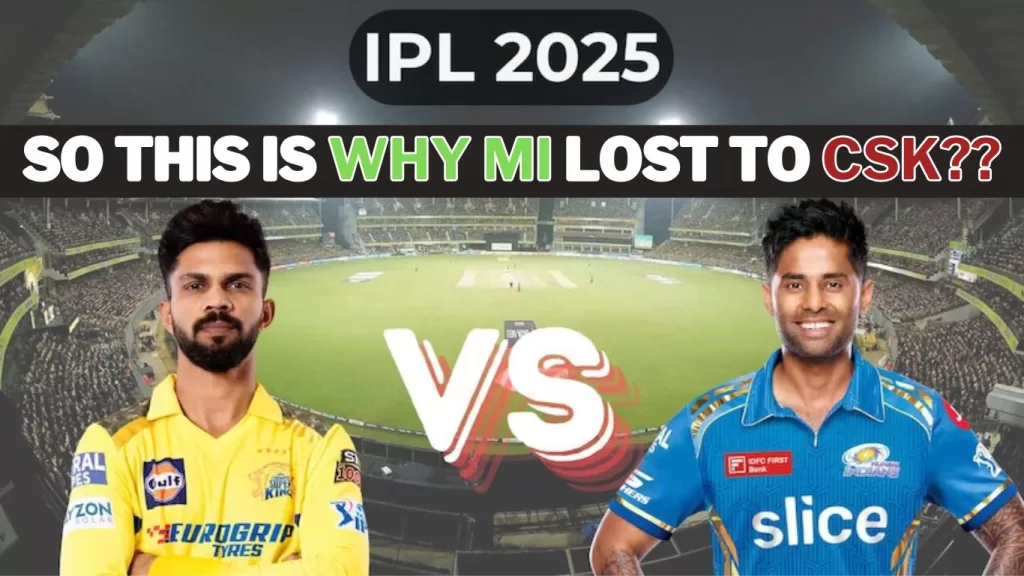Debt Settlement vs Debt Consolidation: Sometimes it is very hard to manage your debt, especially on credit cards; it is more challenging when you have a high interest rate and multiple credit cards with a high total balance. If you are someone dealing with debt on a credit card, then you may have come across terms such as debt settlement and debt consolidation. They may look similar, but there is a big difference, and it is very important to understand which one is best for you. Let’s talk about this.
What is Debt Settlement?
Debt Settlement is a process where you ask your creditor to reduce your debt on your credit card. If you are not able to pay off your credit, then you can speak with your bank or credit card provider to discuss your options and see if they can reduce your payoff amount. Creditors may agree to settle for a lower lump sum instead of getting nothing from you. This is the last option anyone considers before filing for bankruptcy. Debt Settlement is generally done on unsecured debts such as credit cards, personal loans, or medical bills, etc.
How Does Debt Settlement Work?
There are multiple steps followed in the settlement process:
- Financial Assessment: In the Financial Assessment, your credit card provider or the Debt Settlement company will determine your total debt and ability to pay.
- Stop Making Payments: Debt Settlement companies may ask you to stop making payments on your credit cards to be considered for Debt Settlement by your credit card or loan providers.
- Must Have a Lump Sum: You will need to pay a lump-sum amount in order to settle your debt, so it is important to be ready with some amount of cash as there is no installment or payment arrangement given in Debt Settlement.
- Negotiate with Creditors: This is where you or your debt settlement company will talk to your credit card provider to negotiate on your debt and get a settlement offer in exchange for debt forgiveness.
- Getting a Settlement Agreement: Once your creditor agrees, you pay the settled amount, and the debt is marked as “settled.”
Pros of Debt Settlement:
To understand the best options for you, let’s first understand the pros of Debt Settlement:
✅ Potential Savings: The motive of Debt Settlement is to pay less than what you owe to your credit card company, and this way you will be able to save funds.
✅ Avoid Bankruptcy: Settlement is a process that can save you from filing bankruptcy, which may have long-term problems and consequences.
✅ Single Payment: In settlement, you make a single one-time payment to pay off your amount and be debt-free.
Cons of Debt Settlement:
Debt Settlement may have some cons as well to understand before you opt for this.
❌ Credit Score Impact: When you settle your debts, then the credit card provider reports your debt as “settled” instead of “paid in full,” which is considered a negative remark on your credit profile.
❌ Fees: If you are dealing with debt settlement companies, then you would need to pay them as well to get you the best settlement offer unless you discuss with the credit card companies directly.
❌ Tax Implications: When it comes to taxes, the forgiven debt may be considered taxable income by the IRS, and you may need to pay tax on that.
❌ Creditor Refusal: In a few cases, creditors are not obligated to agree to a settlement.
What is Debt Consolidation?
Debt consolidation is something that involves combining multiple debts into a single loan or payment, that too with a lower interest rate. This helps you simplify your repayment process and reduces your financial burden. This has a lower negative impact on your credit profile, and you may ask for a lower interest rate as well when combining your debts with a single debtor.
Common Debt Consolidation Methods:
- Personal Loans: This is the most common and easy method of consolidating your debt; you may take a personal loan at a lower interest rate and pay off your credit cards.
- Balance Transfer Credit Cards: A number of credit card companies, such as American Express, offer zero percent balance transfer offers. You can transfer your high-interest credit card balance to a no-interest credit card by taking a 0% balance transfer offer.
- Home Equity Loans: You may also opt for a home equity loan to pay off credit card debt at a lower interest rate.
- Debt Management Plans (DMPs): Working with a nonprofit credit counseling agency to negotiate lower interest rates and structured repayment plans.
How Does Debt Consolidation Work?
- Assess Your Debt: Your total debt from different debtors is calculated in order to understand your creditworthiness and the amount required to consolidate your debts.
- Apply for a Consolidation Loan: When you know the amount you need, you can apply for a consolidation loan from a bank, credit union, or online lender. Some credit card companies may also offer credit card consolidation if you have multiple credit cards with the same credit card provider.
- Use the Loan to Pay Off Debt: Once the loan amount is received, you can pay off all outstanding credit card balances or unsecured loans.
- Make Monthly Payments: After the debt consolidation is done, you’ll make one monthly payment towards the new loan instead of multiple bills.
Pros of Debt Consolidation:
Debt consolidation has considerably more benefits such as:
✅ Lower Interest Rates: Reduces the total amount paid over time.
✅ Single Monthly Payment: Easier to manage than multiple credit card payments.
✅ Improved Credit Score: Making timely payments on a consolidation loan can help rebuild credit.
✅ No Negotiation Required: Unlike debt settlement, you don’t need creditor approval.
Cons of Debt Consolidation:
Understand the cons of debt consolidation before you apply for the credit card consolidation loan:
❌ Requires Good Credit: A good credit score is required to have a debt consolidation loan because you will need a big amount to pay off all your debts. A lower interest rate may also not be available if you have a lower credit score.
❌ Potential for More Debt: Considering that you will have only one single payment to make every month, it may make you spend more, which could lead to further debt.
❌ Longer Repayment Period: Lower monthly payments may extend the time it takes to pay off the debt.
Debt Settlement vs Debt Consolidation: Comparison Table
| Feature | Debt Settlement ✅/❌ | Debt Consolidation ✅/❌ |
|---|---|---|
| Reduces Total Debt Amount | ✅ Yes | ❌ No |
| Lowers Interest Rates | ❌ No | ✅ Yes |
| Single Monthly Payment | ❌ No | ✅ Yes |
| Credit Score Impact | ❌ Negative | ✅ Positive |
| Requires Good Credit | ❌ No | ✅ Yes |
| Potential for Tax Consequences | ✅ Yes | ❌ No |
| Creditor Approval Needed | ✅ Yes | ❌ No |
| Debt-Free Faster | ✅ Yes (if settled) | ❌ Longer term |
Debt Settlement vs. Debt Consolidation: Which is Right for You?

Choosing between debt settlement and debt consolidation depends on your financial situation. There are factors mentioned below to consider before making your decision:
Debt Settlement is better if:
✅ You have multiple unpaid payments and are struggling financially.
✅ You are not able to pay in full now or in the near future.
✅ You want to avoid bankruptcy by paying a small amount or using the funds you can arrange easily.
Debt Consolidation is better if:
✅ You have a regular income and want to simplify payments and debts.
✅ You want to reduce or pay your debt with a lower interest rate.
✅ You have a good credit score that makes you eligible for a low-interest consolidation loan.
Additional Considerations
Impact on Credit Score
- Debt Settlement: This can significantly damage your credit profile and score, but it is needed to get the financial relief.
- Debt Consolidation: This can have a positive impact on your credit profile and score if payments are made on time.
Long-Term Financial Health
You will have to rebuild your credit profile, and it is also essential to work on your spending habits to be in control in the future.
If you choose debt consolidation, make sure you don’t take on any new loans and that your spending pattern is under control, so you don’t have new payments to make along with the consolidated monthly payment you make.
Costs and Fees
Debt settlement fees range from 10% to 25% (or higher in some cases) of the settled amount.
Debt consolidation fees depend on the loan provider; there can be balance transfer fees or no fee if they have any offer running for a 0% balance transfer fee or consolidation loan fee.
Final Thoughts
If you’re facing overwhelming credit card debt, both debt settlement and debt consolidation offer paths to relief. However, before making a decision, it’s essential to assess your financial standing and long-term goals. Consulting a financial advisor or a credit counselor can also provide valuable guidance.
If you are already in financial trouble and looking for a solution to get out of the situation, then either option can be beneficial for you. However, before you make a decision, you need to check your financial standing and long-term goals. You may also need to consult with a financial advisor or a credit counselor to get the best advice for yourself.
With these debt relief options, you can manage your finances and work towards a debt-free future or your goals! Choose the one that is best suited for your financial situation and your ability to repay so that you can have long-term stability and success. Zeementary.com Wishes you all the best in your Journey.
This was our Article on Debt Settlement vs Debt Consolidation and we hope you find it useful in deciding between Debt Settlement vs Debt Consolidation.




